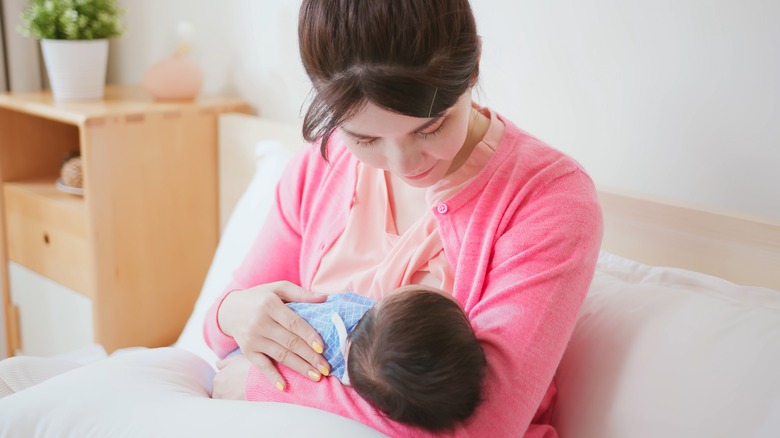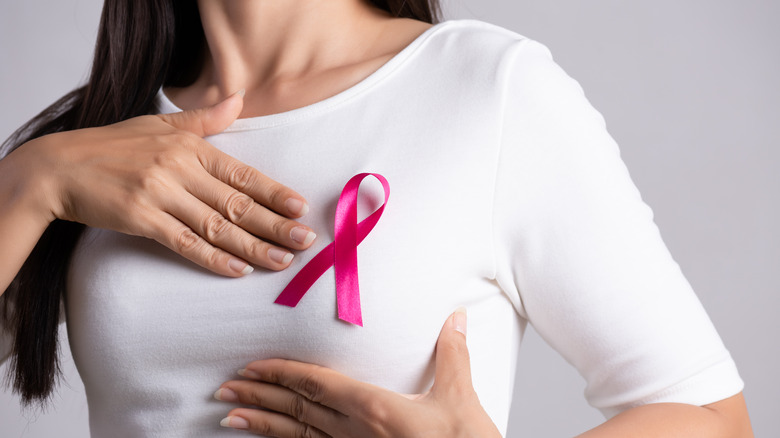Can You Still Breastfeed If You Have Breast Cancer?
A breast cancer diagnosis can be devastating, and it can be even more crushing if you've recently experienced one of the happiest moments of your life by giving birth to your child. Unfortunately, a woman has a 13% lifetime risk of developing breast cancer which makes it one of the most common cancers in women, according to the American Cancer Society. As it turns out, while breastfeeding can reduce a woman's risk of breast cancer, being pregnant can slightly increase it (per Cancer Treatment Centers of America).
For a mother navigating the stress of her cancer diagnosis and trying to balance taking care of her infant, deciding whether to breastfeed can be a difficult decision, especially given the importance of breastfeeding on a baby's development. As reported by the Department of Health, breastfeeding a newborn can contribute to the prevention of allergies, diabetes, cancer, and ear infections. In addition to being able to grow to a healthier weight, babies who are breastfed may also score higher on IQ tests, as elaborated upon in a 2022 article published in Frontiers in Nutrition. Breastfeeding mothers can also develop a deeper bond with their children.
Despite breastfeeding's benefits, a mother and her baby's health are a top priority. Consequently, you may wonder whether breastfeeding after a breast cancer diagnosis is safe for a mother and her baby, and whether she should continue.
Is it safe to breastfeed if you have breast cancer?
Whether a breastfeeding mother who was diagnosed with breast cancer should continue to breastfeed depends on where she is in her treatment. For example, if a mother is presently undergoing chemotherapy or has recently completed her treatment, she will be encouraged not to breastfeed, according to Breast Cancer Now. The drugs used during chemotherapy can be passed through a mother's breastmilk, so breastfeeding during treatment is considered unhealthy for a baby.
As explained by the American Pregnancy Association, mothers who are on certain targeted therapy drugs to treat breast cancer will also be instructed not to breastfeed, with some examples of these drugs being Afinitor and Herceptin. It's also considered unsafe to breastfeed while taking some hormone therapy drugs.
Breastfeeding during or after radiotherapy can have negative consequences for a mother, as a mastitis infection can occur (per Breast Cancer Now). In some cases, breastfeeding from the non-treated breast may be possible. Additionally, a mother who has had breast surgery may be able to breastfeed, but breastfeeding from the non-treated breast is also recommended.
For these reasons, breastfeeding mothers who have recently been diagnosed with breast cancer should seek advice from their doctor regarding their treatment options and whether they should proceed with breastfeeding their newborn.


